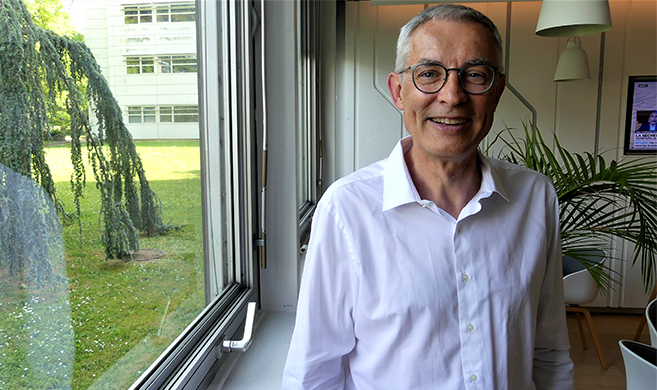Listen to the podcast:
Bertrand, what role does governance play in solidifying the public-private partnerships?
Governance focuses on how to organize the relationship between public bodies and private companies. The evolution of good governance could be the way to add civil society to decision-making in setting up policies. This is particularly important in term of access to services or facilities: social infrastructure, education, healthcare, and so on. The people potentially receiving these benefits should have the opportunity to share their opinion and to adequately influence the setting up of the project.
What do you mean, “adequately”?
Well, for example, more people living in the rural settings should receive equivalent services to those living in large cities. Often, the main focus of these services is reserved for people living in urban environments. This can be in terms of the quality of waterpipes or the infrastructure providing power, for example. We call this multi-partner governance and it's a key notion.
We’ve examined it at length in a paper for the Journal of Management Studies called “Public-Private Collaboration, Hybrid Organizational Design and Social Value,” (co-written with Ilze Kivleniece and Sergio Lazzarini, ed.) which focuses on the intersection between public, non-profit and private spheres. These successful inter-organizational collaborations help create social value and also mentions organizational logics. That's very important because adds non-market dimensions.
We need multi-partner governance since we cannot rely on the ability of market-based mechanisms to repair these inequalities.
These help us in several ways, for example, to anticipate the access of pregnant women to health care, access for kids to decent education and ways to respond to any future COVID-19 crises. The latter has shown us inequalities not only between the rural-urban settings here, but between countries and continents, just in terms of access to the vaccine. We need to integrate new dimensions to counter-balance this since we cannot rely on the ability of market-based mechanisms to repair these inequalities. With social objectives, for example: a mix of subsidies thanks to the private effort, allied to complementary public contributions. That's the way to think about hybridity and organizational logics and then capabilities.
First, it’s remarkable to see that many cities and countries have survived in the face of huge waves of the COVID virus with potentially less damage than that inflicted on richer nations. As yet, we don't have reliable figures, but when we check there are some early indicators. I'm thinking about Africa, how did they manage? We might consider the quality of their social networks based on family first and community ties. Secondly, the efficiency of informal mechanisms, people providing food or energy from the marketplace or beyond market mechanisms. So this is a non-market case where we observe higher efficiency thanks to the social ties instead of price-based mechanisms.
One contradiction I’m grappling with is the partnership between public and private can give rise to tensions because the public sector monitors, supervises a private sector in which the priority is sometimes more financial than ethical. How do these partnerships cohabitate, given that there is this degree of public… policing?
Very good question and a delicate one to answer. I think by nature we have this contradiction between key objectives for each partner: profitability vs. social objectives. An efficient business model should deliver some profitability to private companies. It is the key mechanism to attract them to financing any type of project. But we’ve also learnt that many in the private sector are starting to pay attention to long term objectives: purposefulness, but also the ability to be considered as social actors. Private companies can finance social projects, access to education, access to medical and drug treatment in terms of organization. Many large companies have created efficient foundations and the higher qualified and talented people working inside them are able to organize aid or sustainable programs. At the same time, private companies set up partnerships with public bodies to enjoy infrastructure services. And, in order to complement the process, the foundations collaborate with NGOs, say, for example, to help farmers: provide them with new technology to know when they can use water, when they can use fertilizer to improve productivity but also to secure scarce resources.
Many in the private sector are starting to pay attention to long term objectives, and private companies can finance social projects.
At present, the traditional governance, the traditional executives, pay greater attention to these forms of needs. Why? Because of social media and their campaigns, the very active lobbies and activists who put huge pressure on their shoulders. Executives now have to be transparent on what policies they have implemented because, if you check the profitability of the financial industry in 2021, you can see there was a huge divide between shareholders and workers, between shareholders and stakeholders. So, it's really delicate to say in 2022: ‘We don't have money for that project’. It’s simply brutal and not affordable. So, you see, it's better to say yes. Part of this dividend has been huge contributions fueling foundations’ activities, in order to provide power to help farmers or to better educate children or give access to kids to education, to health care, etc. At present, private companies are expected to contribute to the social, environmental and governance (ESG) objectives.
I want to turn to the legislative side. Some countries have passed laws which encourage this hybridization and protect all the partners. You’ve been studying this development, I believe.
Yes, an HEC Paris PhD student of mine, Seyed Mohammad Taghi Hosseini, and I have been recently working on a paper which focuses on property rights and control rights. We presented it at the Academy of Management in Seattle in August. So, what have we seen? Some countries have added extra texts to their existing procurement legislation that are fully dedicated to public private partnerships (PPP): Ghana, Canada, France, and Brazil, just to mention four nations. But the first results show it’s created a less- or non-flexible framework and investors can sometimes be reluctant when faced by this lack of contractual flexibility. It's much more in terms of managerial skills, as shown in another paper published in Organization Science (2019) and entitled “The Private Scope in Public-Private Collaborations: An Institutional and Capability-Based Perspective” (co-written with S. Cabral, S.G. Lazzarini, and I. Kivleniece).
In this case, it's the contractual flexibility that’s put into question. It's so well defined in terms of specific PPP law, managers lose bargaining power, but also the room to discuss exactly how to serve their joint objectives with public bodies (market size and segmentation, pricing, duration, and range of services). At the very beginning of negotiation, partners are thinking: ’Oh, it would be very efficient to add some specific legislation to the environment’, but there can be some counter-effects in creating such a demanding framework. That's creating tension and contradictions. There’s much more research to be done, but it's the first indications we’ve noted from our results.
Bertrand, in 2021 the Harvard Business Review published an article (Our Brains Were Not Built for This Much Uncertainty) about how uncertainty can cause a loss of motivation, focus, cooperative behavior, self-control, sense of purpose - a lot of psychological dimensions which you’ve also studied. How could this uncertainty play on the hybridization you’ve researched in these modern times? What psychological impact on the job market could it have, for example?
To my knowledge, it's not totally clear. There are indications it has an impact on motivation, however. Motivation at the executive level, but also at the team and groups level. Will a company keep an employee who outperforms and, develops talent and skills? It's part of the new trends on the labor market, this tie between the individual and the company. And then there is the alignment between company objectives and individual objectives, in terms of remuneration and organizational economics.
This is a very relevant research topic because we secure the quality of ties by praising and rewarding employees who are then likely to start again to deliver the best value to their company which needs solutions. But if they are skeptical or in doubt about quality or variable alignment with the company interest, they will start to question their future and look to change jobs. So in this case it can have a big, big impact on the talented teams and their ability to provide dynamic answers.
A young generation is paying attention to purpose and the common good, and employers need to speed up the adaptation process.
Another key point for companies is that we have a young generation that’s paying attention to sustainability, calling for solutions to fight the climate change challenges, more generally, they focus more on purpose and the common good. This has an impact on the profile of jobs the new generation expects to be offered, and that's a very delicate subject for employers and managers now. Some of the latter confess that, sometimes, they don't understand the new generation’s values. They need to speed up this adaptation process. The long-term life cycle relationships they are seeking to establish between employees and the individual company appears to be over. Sometimes after two years individuals decide to quit. That has a tremendous impact on different job and labor markets. So I would say the angle I would pick from this article in the Harvard Business Review concerns the quality of alignment in terms of values of individuals and companies, and the ability of the latter to attract talented people.
Finally, what other research are you working on in terms of the public/private sector partnerships, this hybridization for our modern times?
I have a couple of working papers in progress. I can mention one about the process to elaborate a stable governance which is able to satisfy different individual actors belonging to a community but having individual (and potential diverging) interests. And the research question I'm trying to answer is: can we set up some rules of governance to satisfy a good number of community members? In terms of tipping points, under which conditions can we have a large enough community of people ready to share same values and agree on a stable governance?
The research focuses on the same awareness to common good, and the paper is about social dilemma. Suppose each individual has a part of a forest, even just one tree. The traditional business model would encourage cutting down the tree after some years, an individual business model, to get the most out of the tree when it matures. However, what if you build the community interests in order to produce good quality oxygen for all the others? Can we have a way to set up governance in order to organize collectively the cutting and preservation? The cutting of trees in order to renew for the collective benefit of all? For us, based on the understanding of each member of the community, individuals continue to serve both their private interests and contribute to the common good. This is the subject of an interesting paper co-written with one another HEC Paris PhD student, Marc Legrand. We are working on this because it centers on the connection between the type of governance and the ability to serve the common good which is very important in terms of long term and sustainable objectives.







